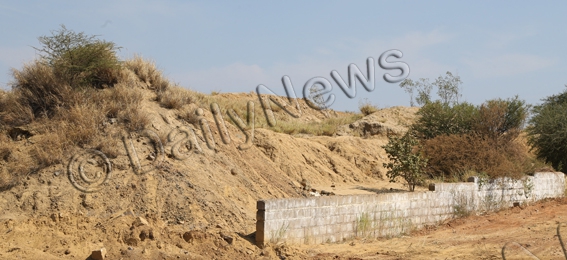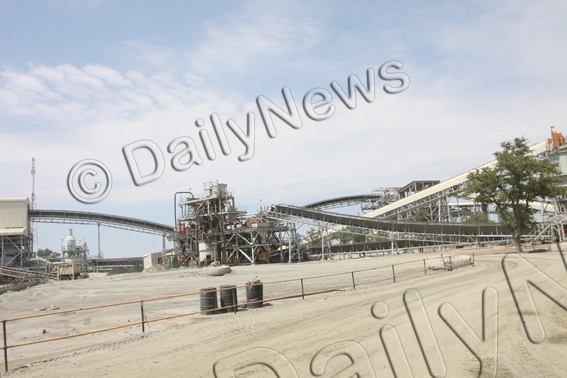Resilience fragility tragedy define Ftown
28 May 2019
To describe Francistown using the terms resilient, fragile and tragic sounds like an oxymoron.
That notwithstanding, these are the words that best capture the character of this former mining hub.
From its early days during the pre-colonial era, the town has endured a turbulent economic period characterised by booms and busts, owing to fluctuations in world commodities demand and prices, especially gold.
The site of Southern Africa’s first gold rush, Francistown is named after Daniel Francis, the first white gold prospector in the area.
It became the first town in Botswana, having existed since 1867. According to information at the Francistown Records Centre, gold mining did not start with European prospectors.
It had taken place between 1100 and 1800 A.D., especially between 1250 and 1650 by pre-colonial settlers in the area.
Evidence also suggests that ancient mining was abandoned when underground water made mining impossible.
The town which emerged as a mining town in the mid-nineteenth century as a result of the European discovery of gold near the confluence of the Tati and Ntshe rivers saw a flurry of activity from prospectors, traders and adventurers in the area.
However, this was short-lived as by 1888 gold mining became uneconomic. It forced the mining community to adapt which led the town to develop as a commercial and trading centre due to its well-developed transportation and communications link with Northern Botswana, especially, Namibia, Zambia and Zimbabwe.
The town, economy has since the late 1800s experienced upheavals as years of prosperity due to mining have been interrupted by periods of economic hardship precipitated by falling metal prices in the world market.
To date, this state of affairs still obtains in the country’s oldest town. During the 1929 Great Depression, a worldwide economic downturn that lasted ten years with the crash of the stock market, records show that Francistown did not escape this economic phenomenon.
Rising global unemployment and declining production saw global trade plummeting by 65 per cent between 1930 and 1932.
Global demand for gold fell to lower levels and as a commercial and mining hub, Francistown which was linked to the global economy by trade was severely affected.
According to records from Supa Ngwao Museum, gold mining sustained the economy of Francistown from the late 1800’s until around 1930s.
It also notes that this gold mining boom came to an end during the global depression of the 1930s.
Furthermore, the museum records add that from 1936 to 1980, the economy of Francistown was largely dependent on the Witwatersrand Native Labour Association (WENELA), a company that recruited labour for South African mines.
Consequently, it mentions that the mine workers were recruited from many African countries, and were transported to South Africa via Francistown either by plane or railway.
Many industries thrived in Francistown throughout its tumultuous economic history but this was more pronounced when the mines were profitable and up and running.
The collapse of mining at any point in Francistown’s history takes down many cottage industries that service the mine and mining companies.
During the colonial era, Francistown industries thrived through supplying goods to the trade-embargoed Rhodesia.
This period saw the development of the Dumela Industrial to cater for heavy industrial activity. However, the end of the Rhodesian war of independence saw an exodus of firms back to the newly independent Zimbabwean state.
Some businesses in town have withstood these economic hardships and they include Haskins, PG Timbers, Tati Company, Cash Bazaar and Furniture Mart.
Their resilience has seen them expanding their footprints from Francistown to become household names in many parts of the country.
Gold has, from pre-colonial times, been the flagship mineral in the country’s second city and currently, small scale mining continues with Mupane Gold Mine still hoisting the flag and keeping the tradition alive.
As mining and the city of Francistown are synonymous, 1989 saw the resumption of mining activity around the town at Selkirk and Phoenix mines by Tati Nickel Mining Company.
The Copper-Nickel mines blossomed owing to huge demand for copper and nickel in China and other emerging markets.
After operating for 26 years the mine closed down in 2016 after being bought by BCL throwing nearly a thousand employees into the streets.
This had a negative effect on the town’s economy as the mine supported businesses and the real estate sector which sustains livelihoods in many low income households.
The mineral boom in Francistown also saw the mushrooming and development of peripheral urban centers which grew from villages bordering the city.
The demand for accommodation and land from the economic spillover of the mines saw villages such as Tati Siding, Borolong, Shashe Mooke and Matshelagabedi growing at a frightening speed to cater for those who migrated from the city.
Francistown has not only had a chequered history on the economic front. Socially and politically, the city carries many scars owing to its fragility and proximity to countries in the north, especially as a result of activities in the 1960s.
The Francistown Centenary Brochure, a publication celebrating 100 years of the town’s existence notes that WENELA came to Francistown in 1936 to recruit workers for the South African gold mines.
These workers came from countries such as Angola, Malawi, Zambia, Tanzania and even Botswana. This literally turned Francistown into a processing centre for miners enroute to South Africa.
The publication highlights that the miners made a huge contribution to the local economy as the company employed close to 600 people and processed 100 000 miners annually.
WENELA Air Service, it noted, also built the Francistown Airport’s runway and hangar in the 1950s to fly recruits between Francistown and their home countries.
The brochure notes that the decision to use planes led to the company’s downfall as in 1974, a Blantyre bound WENELA plane, the DC4 Skymaster carrying Malawian miners crashed killing most of the passengers shortly after takeoff.
This was a sad day for Francistown as the company had made a huge economic impact. Malawian miners accounted for over half of the company’s recruits because they were willing to work in dangerous conditions.
The company was then thrown out of Malawi and ultimately closed its Francistown operation. Politically, Francistown was a melting pot of cultures and served as a safe haven for refugees from countries in conflict in the 1960s.
Due to its good communication and transport network, especially the train, many of the liberation fighters fleeing white minority rule in Zimbabwe and South Africa landed in Francistown and sought refuge in the town on their way to the north.
This attracted the attention of Ian Smith’s Rhodesia and South Africa’s apartheid rulers who believed that Botswana was a hiding place for the so called terrorists who carried out sabotage attacks in furtherance of their resistance to minority rule.
Francistown like Gaborone did not escape the wrath of the apartheid assassins and paid a heavy price for hosting the refugees.
According to information at the Francistown Records Centre, as the town grew in popularity as a transit point, it put itself on the frontline of attacks by white minority rule states.
According to the report, in August 1963 an unoccupied East African Airways plane was blown up on the runway in Francistown five hours before it was scheduled to fly several South African refugees to Da es Salaam.
By acting as a transit centre, the report notes that Francistown was drawn into the struggle for liberation when the Rhodesian government declared its frontier with Botswana a war zone.
Consequently, it noted that on December 17, 1976, Rhodesian Sealous Scouts crossed into Botswana and shot at the Police Mobile Unit camp in Francistown.
Furthermore, the report demonstrates that in May 1977 the newly established Botswana Defence Force base in Francistown had to deal with a shocking incident where 400 people attending a dance at Mophane Club were attacked with a hand grenade by the Rhodesian army.
Fortunately no one was killed. In addition, the report says that another bomb destroyed the refugee house of Amnesty International in Satellite in 1964, a transit point for South African political refugees.
While both Zimbabwe and South Africa have gained independence, the scars of the liberation wars still adorn Francistown.
The ruins of the Amnesty International refugee are still standing between the School for the Deaf and Cresta Marang Hotel.
Though it was bombed in 1964, Francistown is still scarred by traces of the attacks that once happened in its environs.
The destroyed buildings whose parts still stand to date are a grim reminder of the torturous history of fragility that once engulfed the town.
Some places like the Mophane club have been transformed. A modern day church, The Rock, now stands on the site at the foot of the Nyangabgwe Hill.
This development has overpowered the trace of the bombing. Environmentally, Francistown has to deal with scars of a different nature.
There are about forty abandoned old gold mines within the city which have not been rehabilitated, some of which have underground shafts.
The abandoned Monarch mine identifiable by its big yellow dump was formerly the biggest mining operation in the Tati Concession.
It now lies idle posing a risk to members of the community. The dangers posed by these mines are not easy to identify from outside.
Some of these may cave in due to unstable rocks while mine openings are sometimes camouflaged by vegetation.
There is also is possibility of the buildup of dangerous gases in underground shafts which might contaminate the environment.
For Francistowners these are the realities that they have to navigate on a daily basis to eke a living. The buzz and the innovativeness of the vendors obscure what they have to put up with to survive the contradictory economic character of the country’s oldest town. ENDS
Source : BOPA
Author : Puso Kedidimetse
Location : FRANCISTOWN
Event : Interview
Date : 28 May 2019







